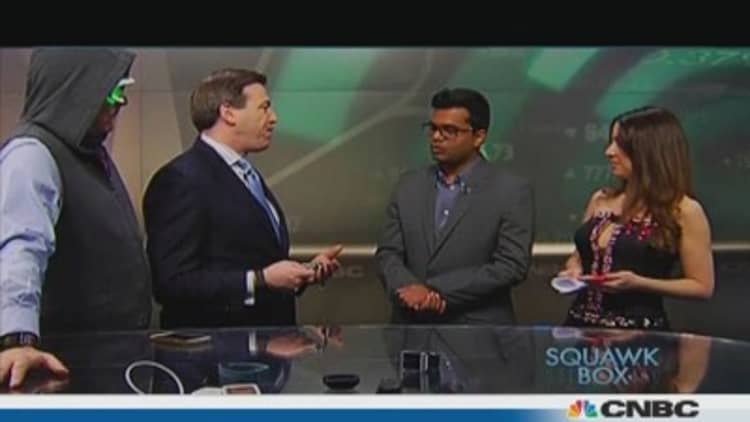From picture-taking glasses to watches that answer calls, wearable technology often conjures up images of curious spy gadgets.
Companies are racing to capture the wearable market, but analysts are questioning whether the products currently being offered are good enough for tech-hungry customers.
The wearable technology industry is set to grow from an estimated $3 billion to $5 billion in 2013 to over $42 billion in the next three to five years, according to Credit Suisse.
Technology giants like Samsung and Google have already jumped onto the growing trend aiming to capture the market with such products as smartwatches and smartglasses.
(Read more: The 'next big things' in wearable tech)
While there is little doubt that wearable tech will take off, analysts are not convinced that the current range of devices is sophisticated enough for the mass market.

"This is the future: … Wearable devices are the next big thing. The whole mobile ecosystem understands that and accepts it," Nitin Bhas, senior analyst at Juniper Research, told CNBC in a TV interview.
"Wearable devices as of now … represent a 'nice to have device,' not a 'must have device.' This is the future, … but lots needs to be added to it, more functionalities need to be added."
Wearable technology has traditionally been dominated by fitness devices such a Nike's FuelBand and the Armour 39 Fitness Belt, which tracks data like the amount of calories a person burns or distance walked.
(Read more: Why Galaxy Gear is no 'game-changer' for Samsung)
But new devices including smartwatches and smartglasses are moving to get a foothold in the sector.
The smartwatch market has great potential with Samsung and Nokia releasing products and Apple rumored to be working on a device. App-enabled smartwatch shipments will reach 36 million per year by 2018, compared with just over 1 million this year, according to Juniper research.
Smartphone makers see an "enormous opportunity" in the wearable market, Ian Fogg, head of mobile analysis at IHS Electronics and Media, told CNBC, but producers are still trying to figure out the right designs for their devices.
"This is a very nascent market where everyone is feeling their way about what the functionalities of any device should be," he said.
"Different companies are putting different mixtures of capabilities and making tradeoff decisions to make a compelling product without bulkiness and rubbish battery life."
(Read more: When to expect Apple iPhones, iPads, iWatch and iTV)
With the wearable market set to rapidly expand, technology companies are looking to take advantage. Existing dominant brands are best positioned to gain the most market share, Paul Davies, senior technology analyst at Mintel, told CNBC.
"You can't ignore the existing brands' domination [of] the smartphone and tablet markets," he said.
"The brands that give fewer restrictions and make their devices compatible with other brands and operating systems will probably be the ones consumers favor so they can change their smartphone and tablet brand without having to change their wearable smart device."
—By CNBC's Arjun Kharpal: Follow him on Twitter @ArjunKharpal.


